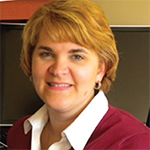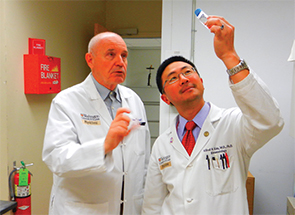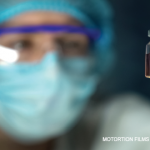
Dr. Lenschow
Encouraging rigorous technique and scientific independence pervades the Wash U program, observes V. Michael Holers, MD, who is the Scoville Professor and head of the Division of Rheumatology at the University of Colorado, Denver. The division has an “outstanding science program that teaches you to be an independent thinker and to do research that is often against current dogma,” says Dr. Holers, who was recently named to the NIAMS Advisory Council. He spent a total of 17 years at Washington University, from medical school to internship and residency to a research fellowship as an HHMI assistant investigator and associate professor.
The division has received NIH training grants for more than 40 years, allowing acceptance of post-doctoral candidates from around the world. Dr. Atkinson points out that fellows are not tethered to the division’s laboratories: “They can work in any lab in the entire university,” he says. Some have studied law and business or bioinformatics. “We give them tremendous leeway, and that helps attract certain kinds of individualistic high performers.”
For example, he points to Deborah J. Lenschow, MD, PhD, associate professor of medicine, who spent the majority of her postdoctoral lab training with a faculty member within the Department of Pathology and Immunology and not the Department of Medicine. She now directs a laboratory within the division aimed at investigating the interplay between viruses, innate immune regulators and autoimmune diseases. This includes elucidating the mechanism by which ISG15 exerts antiviral activity and regulates the innate immune response and translational and basic science studies focused on the pathogenesis of CHIKV-induced arthritis. She is also a teaching attending and with a colleague, Alfred Kim, MD, PhD, has instituted a basic immunology course for fellows.
In 2013, Dr. Kim inaugurated The Lupus Clinic at Washington University School of Medicine.
Collaborations Abound
The program’s commitment to clinical and basic immunology research training is manifest by several collaborations, says Dr. Atkinson. Those include a close connection with the Pediatric Rheumatology Program, run in concert with the Department of Pediatrics, and the Juvenile Idiopathic Arthritis Clinic at Shriner’s Children’s Hospital, a combined program with the VA Medical Center whose Rheumatology Group is headed by Amy Joseph, MD, as well as weekly Adult–Pediatric Grand Rounds and a weekly Translational Conference, both conducted at Barnes Jewish Hospital.

Dr. Atkinson and Dr. Kim.
David Karp, MD, PhD, Fredye Factor Chair in Rheumatoid Arthritis Research, Harold C. Simmons Chair in Arthritis Research and chief, Division of Rheumatology, University of Texas Southwestern Medical Center, also trained with Dr. Atkinson, among others, at Wash U. The program’s principal mission of training medical students, residents and fellows is also a testament to Dr. Atkinson’s approach, he says.

